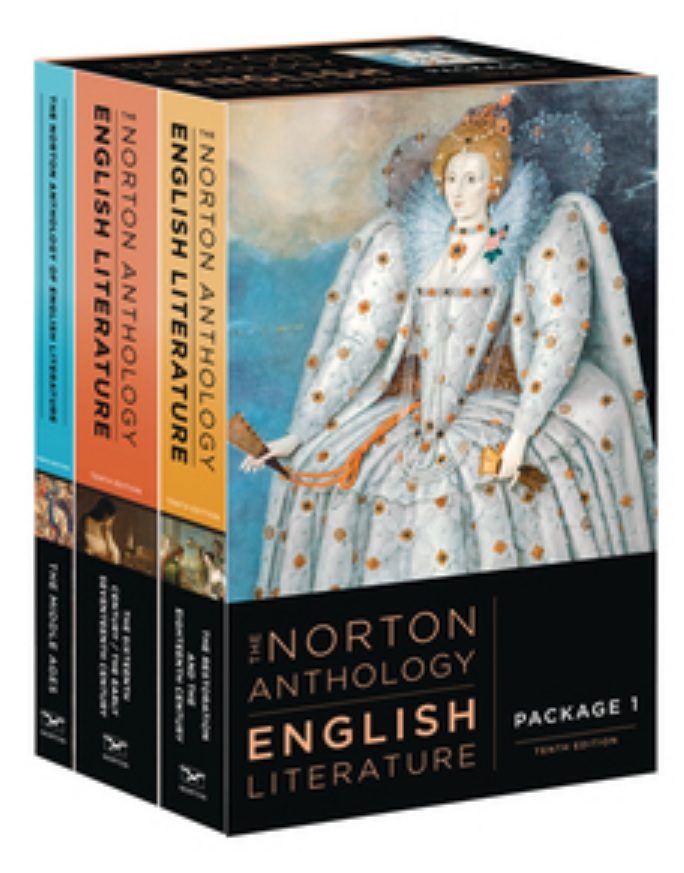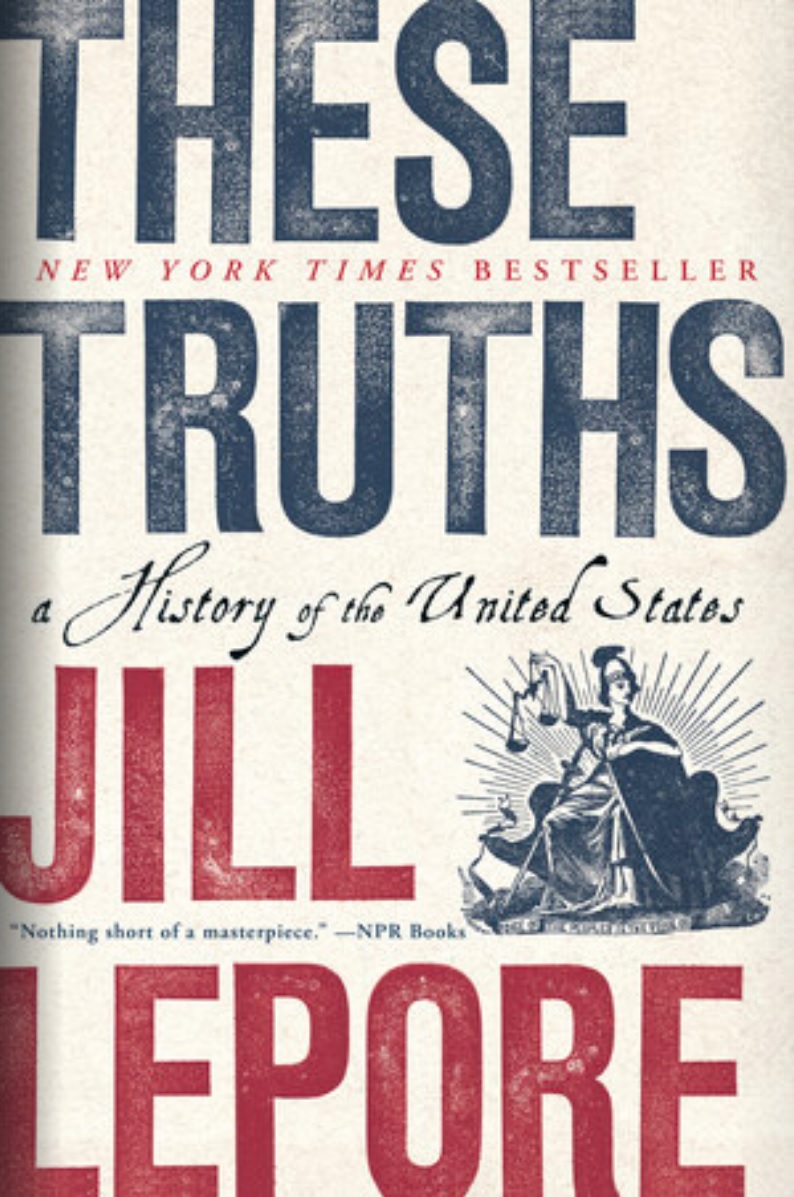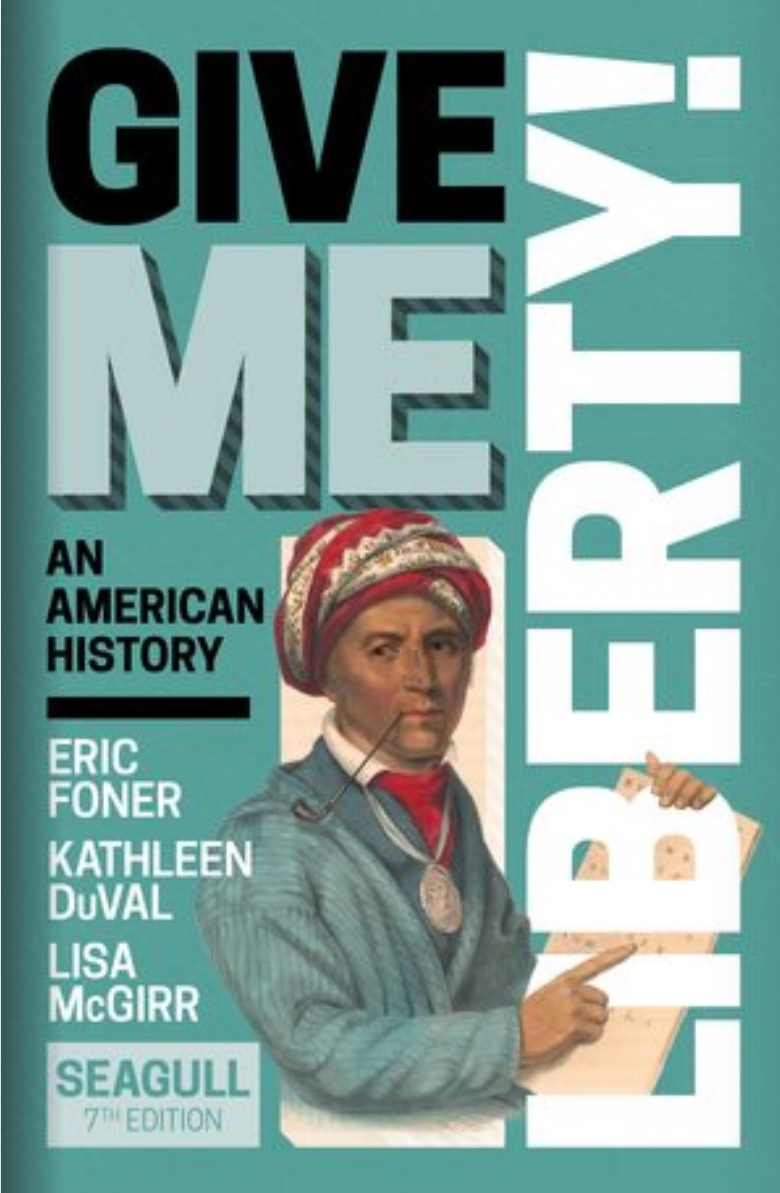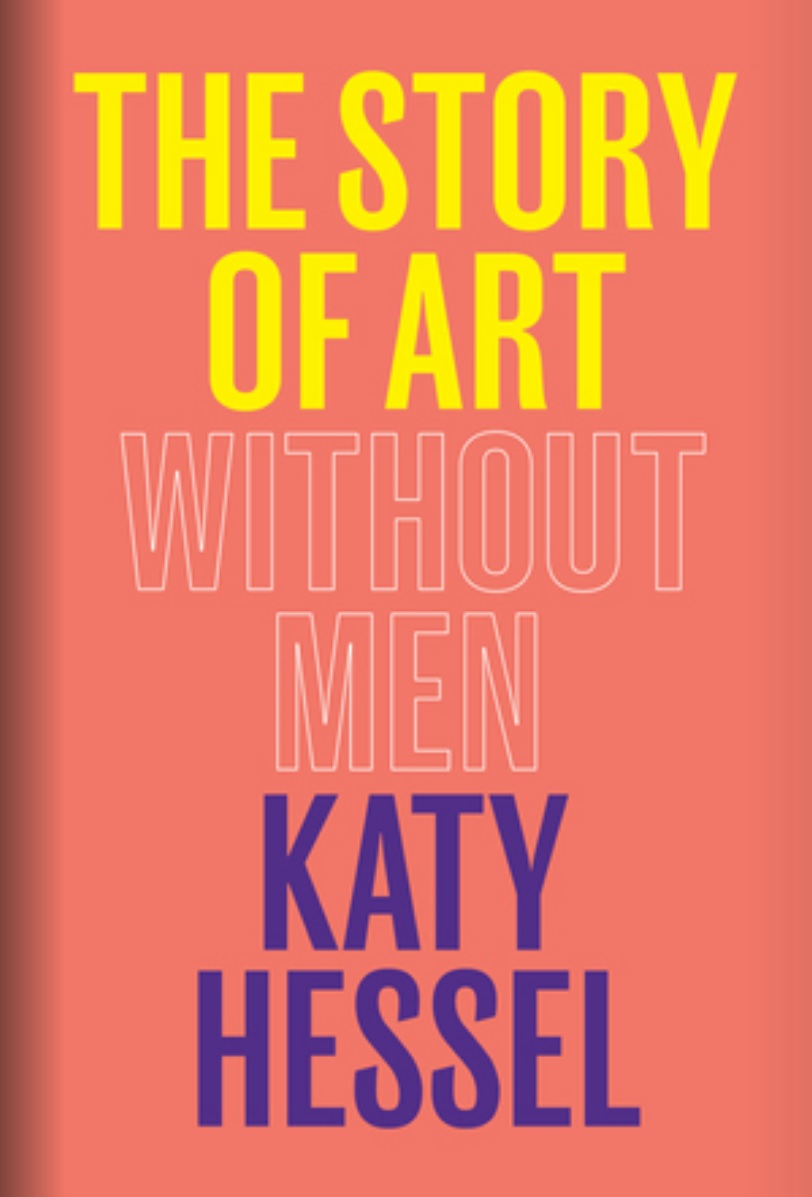Happy 100th Birthday, W. W. Norton & Company!
With the support of the publisher, Shelf Awareness celebrates the 100th birthday of W. W. Norton & Company, one of the most respected, thoughtful, influential and cutting-edge publishers in the country.
With the support of the publisher, Shelf Awareness celebrates the 100th birthday of W. W. Norton & Company, one of the most respected, thoughtful, influential and cutting-edge publishers in the country.
 |
|
| Julia Reidhead photo: Beowulf Sheehan |
|
As it celebrates its 100th anniversary, W. W. Norton & Company stands out in the book business in many unusual, wonderful ways. Perhaps most important, Norton has stayed true to the ideals of the husband-and-wife founders of Norton--William Warder Norton and Mary "Polly" Dows Herter Norton--who wanted to democratize education and share the knowledge of the times with the broadest possible audience in works of enduring importance and quality.
Beginning in 1923 with the publication in pamphlet form of lectures delivered at the People's Institute, the adult division of Cooper Union in New York, and expanding quickly into general nonfiction and poetry, then fiction, textbooks, anthologies, books for professionals, and children's and YA, the ideals of the Nortons have been "present on every list," Norton chairman and president Julia Reidhead says.
Another important quality that distinguishes Norton is its employee-ownership structure. As Norton likes to say, it's the largest independent, employee-owned publisher in the U.S. (It may be the largest independent in the U.S., too.) The employee-ownership plan, which includes most staff members, was instituted by Polly Norton after her husband's death, "a very unusual move for 1954" but one that has allowed Norton "to be able to turn 100 in a way the Nortons intended the firm to be," Reidhead says.
Employee ownership gives the company an uncommon stability and focus as well as creates a culture of collaboration, shared purpose, and shared decision-making--and even a shared responsibility about such things as managing expenses. It helps keep staff mindful, Reidhead observes.
Another important part of Norton's success is that it has stayed smaller than some of its competitors, with about 630 people, including staff at the Scranton, Pa., warehouse and the field sales force. "The scale of our house is one of our great strengths," Reidhead says. "We know each other, and people spend their whole lives here."
 Reidhead herself is a sterling example of that. In 1983, she joined the company as a traveling college sales representative covering Ohio, Kentucky and Indiana. In 1984, she became assistant advertising manager of Norton's college department, and in 1986 became advertising manager. In 1988, she joined the editorial staff as associate editor for foreign language and freshman composition, then became editor, literature and composition, and in 1993, senior English editor, responsible for the Norton Anthologies. She edited the flagship Norton Anthology of English Literature, three editions of The Norton Shakespeare, The Norton Anthology of Literature by Women and The Norton Anthology of African American Literature, among others. In 1999, she became associate director of the college department, editorial director in 2007, and publishing director in 2014. She was named a v-p in 1993 and was elected to the board of directors in 1996. In 2016, she became president, and in 2020 she became chairman. She has also edited many books on the trade side, including works by Adrienne Rich, Pauli Murray, Russell Shorto, and Anne Enright (as well as Seamus Heaney on both the trade and academic sides). And she continues to edit--this fall Enright's new novel, The Wren, the Wren, will appear.
Reidhead herself is a sterling example of that. In 1983, she joined the company as a traveling college sales representative covering Ohio, Kentucky and Indiana. In 1984, she became assistant advertising manager of Norton's college department, and in 1986 became advertising manager. In 1988, she joined the editorial staff as associate editor for foreign language and freshman composition, then became editor, literature and composition, and in 1993, senior English editor, responsible for the Norton Anthologies. She edited the flagship Norton Anthology of English Literature, three editions of The Norton Shakespeare, The Norton Anthology of Literature by Women and The Norton Anthology of African American Literature, among others. In 1999, she became associate director of the college department, editorial director in 2007, and publishing director in 2014. She was named a v-p in 1993 and was elected to the board of directors in 1996. In 2016, she became president, and in 2020 she became chairman. She has also edited many books on the trade side, including works by Adrienne Rich, Pauli Murray, Russell Shorto, and Anne Enright (as well as Seamus Heaney on both the trade and academic sides). And she continues to edit--this fall Enright's new novel, The Wren, the Wren, will appear.
Reidhead notes the importance of so many Norton staff having come up through the editorial ranks and that she herself continues to edit. "This helps us better view what we'll publish and makes it a more collective experience," she says. "I always feel it's important to read and have opinions as a reader."
Reidhead is also busy outside Norton. She's on the board of the National Book Foundation, was chair of the board of governors of Yale University Press from 2012 to 2022, and just last month she became chair of the board of the Association of American Publishers.
 "I feel I stand on the shoulders of giants," Reidhead says. "The continuity at Norton is unusual." She adds: "But it's a kind of continuity that keeps us forward-looking and nimble. All of us at the company today follow in a long line of independent thinkers. Our tradition is to chart our own course each and every day."
"I feel I stand on the shoulders of giants," Reidhead says. "The continuity at Norton is unusual." She adds: "But it's a kind of continuity that keeps us forward-looking and nimble. All of us at the company today follow in a long line of independent thinkers. Our tradition is to chart our own course each and every day."
The trade and college publishing programs are also key to the company's success. Norton occupies "a space between the trade and academic world probably more than any other house in the business," Reidhead notes. "This synergy defines us and makes us unique in publishing." Most other trade publishers that had substantial college publishing operations have sold them.
In many cases, Norton authors' books are first published on the academic side or on the trade side and then find a strong audience in the other market. Among authors who have started on the trade side and whose work then finds a strong academic audience are Jill Lepore, whose These Truths, a trade survey of U.S. history, has just been adapted for the college market, with the textbook appearing in March, and Eric Foner, author of acclaimed trade books like the Pulitzer Prize-winning The Fiery Trial, whose college book Give Me Liberty!: An American History has become the leading textbook in the U.S. history survey category.
In the other direction, Norton commissioned Seamus Heaney to do a translation of Beowulf for the academic market. Beowulf: A New Verse Translation was later published as a trade title. The same happened with Emily Wilson's translation of the Odyssey. (In the fall, Norton is publishing Wilson's translation of the Iliad.)
 Over the years, the company has expanded and carried on the founding principles in a variety of ways, but has been very selective about new ventures both inside and outside the company. The Norton Anthologies, the first of which appeared in the early 1960s, were "essentially a new business creation," Reidhead says. They have become perennial bestsellers and used in classrooms around the world.
Over the years, the company has expanded and carried on the founding principles in a variety of ways, but has been very selective about new ventures both inside and outside the company. The Norton Anthologies, the first of which appeared in the early 1960s, were "essentially a new business creation," Reidhead says. They have become perennial bestsellers and used in classrooms around the world.
In the 1970s and 1980s, Norton founded Norton Professional Books, which are written by respected leaders in their fields and have a leading edge focus on mental health, education, psychotherapy & psychiatry and architecture & design.
At the turn of the century, "the world of digital courseware in the education market finally took off," Reidhead says, a move that was accelerated by the pandemic. As a result, Norton's investment here is paying off, and the company's digital educational offerings stand out because of its commitment to "the kind of editorial the company stands for." She acknowledges having "some stumbles, but I feel we've found our way in a marketplace that has largely abandoned the book." By contrast, Norton sees "the book, the author, the editor, the publisher as part of our DNA." Educational courseware is "a very significant part of our identity and business."
In 2018, Norton founded Norton Young Readers, focusing on books for ages three through middle grade and YA, selling into schools and the trade. (The colophon features a youthful Norton seagull with knobby knees.) This kind of publishing is "essential to the business," Reidhead says. "Norton grows readers for life, for their entire lifespan, and if we don't have children fall in love with reading, we soon won't have a publishing business."
The company has also made only few acquisitions of other publishers. In 1974, Norton bought the backlist of storied publisher Liveright, and in 2012, it revived the name as an imprint. Reidhead calls the Liveright list, edited for a decade by Robert Weil and now Peter Simon, "extraordinary."
 In 1996, Norton acquired Countryman Press, which specializes in a range of lifestyle categories, including wellness, cooking, travel, gardening, parenting, pet care, nature and more. The books are handsomely designed, often lavishly illustrated, authoritative and always engaging.
In 1996, Norton acquired Countryman Press, which specializes in a range of lifestyle categories, including wellness, cooking, travel, gardening, parenting, pet care, nature and more. The books are handsomely designed, often lavishly illustrated, authoritative and always engaging.
Norton also distributes more than a dozen distinguished publishers that the company "sells like we sell our own," as Reidhead describes it. "Our distribution clients are really important to us." Some of the distribution relationships go back many decades, such as with New Directions and Thames & Hudson. The distribution clients also include Abbeville Press, Albatross, Blue Guides, George Braziller, Inc. and Persea Books, CIRC, Fantagraphics, Kales Press, Penzler Publishers, Pushcart Press, Tilbury House Publishers, Tin House Books and Well Trained Mind Press.
"We like our client publishers to be complementary to Norton," Reidhead adds. "Our relations are warm and personal: we know the people and the books, and we're actively looking for more."
 Norton is celebrating its 100th anniversary in a variety of ways.
Norton is celebrating its 100th anniversary in a variety of ways.
The company is hosting the opening reception of next week's Winter Institute in Seattle, Wash., with all of Norton's field reps and chairman and president Julia Reidhead in attendance. The event is in recognition of the bond between Norton and independent booksellers. "Getting the right books to the right readers is a shared project," Reidhead says. "We recognize and love the work booksellers do. They're independent-minded and interesting and love what they do--and we're the same."
The company's special Norton Centenary publishing program begins with a new edition of Rilke's Letters to a Young Poet, translated by Polly Norton. Reidhead has written an afterword that delves into Polly Norton's role in co-founding the company, which in the past hadn't received as much attention as her husband's. Warder was known for his involvement in progressive causes, particularly in adult education, but Polly, a polymath, had a deep background in music, literature and science, which came in part from being the member of a family closely connected with the intellectual life of Columbia University.
The Norton Shorts program, being introduced in the fall, is, Reidhead says, "an homage to what the Nortons originally published"--the pamphlet lectures from Cooper Union. The series makes its debut with two books and will consist of two or three titles a year, "bringing to the public the knowledge of our time," by scholars who have emerged as some of the most original, incisive voices in their fields. Some of the books will be controversial and they will be beautiful and engaging, Reidhead promises. They'll be 30,000-40,000 words, about 200 pages, written for the general reader but likely appealing to the academic market, too.
The first two Norton Shorts are Wild Girls: How the Outdoors Shaped the Women Who Challenged a Nation by Tiya Miles, professor of history at Harvard and the author of National Book Award-winning All That She Carried, about the formative years of such people as Harriet Tubman and Louisa May Alcott as well as lesser known women; and Against Technoableism: Rethinking Who Needs Improvement by Ashley Shew, associate professor in Science, Technology, and Society and creator of the Technology and Disability course at Virginia Tech, about how tech often marginalizes the experiences of disabled people. Both titles will be published September 23.
Norton is also eager to work with booksellers who would like to celebrate the anniversary.
 Norton's backlist is one of the most striking in U.S. publishing, marked by titles that "lock into people's brains," make readers look at the world in different ways and "change conversations," as Norton chairman and president Julia Reidhead puts it. These are books with "enduring influence," and she notes that numerous people inside and outside the company can name Norton books that changed their life.
Norton's backlist is one of the most striking in U.S. publishing, marked by titles that "lock into people's brains," make readers look at the world in different ways and "change conversations," as Norton chairman and president Julia Reidhead puts it. These are books with "enduring influence," and she notes that numerous people inside and outside the company can name Norton books that changed their life.
 Primarily nonfiction they include, in rough chronological order, Philosophy by Bertrand Russell, The Greek Way by Edith Hamilton, New Introductory Lectures by Sigmund Freud, Letters to a Young Poet by Rainer Maria Rilke, Childhood and Society by Erik Erikson, The Ugly American by William J. Lederer and Eugene Burdick, A Clockwork Orange by Anthony Burgess, The Feminine Mystique by Betty Friedan, Wide Sargasso Sea by Jean Rhys, Eleanor and Franklin by Joseph P. Lash, Diving Into the Wreck: Poems 1971-1972 by Adrienne Rich, Thomas Jefferson: An Intimate History by Fawn M. Brodie, American Slavery, American Freedom by Edmund S. Morgan, The Black Unicorn by Audre Lorde, The Culture of Narcissism by Christopher Lasch, The Stranger Beside Me by Ann Rule, "Surely You're Joking, Mr. Feynman!" by Richard P. Feynman, edited by Ralph Leighton, Liar's Poker by Michael Lewis, Mother Love by Rita Dove, Fight Club by Chuck Palahniuk, Guns, Germs, and Steel by Jared Diamond, The Perfect Storm by Sebastian Junger, House of Sand and Fog by Andre Dubus III, The Return of Depression Economics by Paul Krugman, Beowulf: A New Verse Translation by Seamus Heaney, Stiff by Mary Roach, the authorized edition of The 9-11 Commission Report, Give Me Liberty! by Eric Foner, The Hemingses of Monticello by Annette Gordon-Reed, The Post-American World by Fareed Zakaria, The Red Book by Carl Jung, edited by Sonu Shamdasani, The Overstory by Richard Powers, These Truths by Jill Lepore.
Primarily nonfiction they include, in rough chronological order, Philosophy by Bertrand Russell, The Greek Way by Edith Hamilton, New Introductory Lectures by Sigmund Freud, Letters to a Young Poet by Rainer Maria Rilke, Childhood and Society by Erik Erikson, The Ugly American by William J. Lederer and Eugene Burdick, A Clockwork Orange by Anthony Burgess, The Feminine Mystique by Betty Friedan, Wide Sargasso Sea by Jean Rhys, Eleanor and Franklin by Joseph P. Lash, Diving Into the Wreck: Poems 1971-1972 by Adrienne Rich, Thomas Jefferson: An Intimate History by Fawn M. Brodie, American Slavery, American Freedom by Edmund S. Morgan, The Black Unicorn by Audre Lorde, The Culture of Narcissism by Christopher Lasch, The Stranger Beside Me by Ann Rule, "Surely You're Joking, Mr. Feynman!" by Richard P. Feynman, edited by Ralph Leighton, Liar's Poker by Michael Lewis, Mother Love by Rita Dove, Fight Club by Chuck Palahniuk, Guns, Germs, and Steel by Jared Diamond, The Perfect Storm by Sebastian Junger, House of Sand and Fog by Andre Dubus III, The Return of Depression Economics by Paul Krugman, Beowulf: A New Verse Translation by Seamus Heaney, Stiff by Mary Roach, the authorized edition of The 9-11 Commission Report, Give Me Liberty! by Eric Foner, The Hemingses of Monticello by Annette Gordon-Reed, The Post-American World by Fareed Zakaria, The Red Book by Carl Jung, edited by Sonu Shamdasani, The Overstory by Richard Powers, These Truths by Jill Lepore.
 The Norton Anthologies also comprise a major part of the Norton backlist, and include The Norton Anthology of World Masterpieces, The Norton Anthology of English Literature, The Norton Anthology of Literature by Women, and The Norton Anthology of African American Literature. In addition, the Norton Critical Editions--including hundreds of titles--help students study and appreciate a range of classic works in world literature.
The Norton Anthologies also comprise a major part of the Norton backlist, and include The Norton Anthology of World Masterpieces, The Norton Anthology of English Literature, The Norton Anthology of Literature by Women, and The Norton Anthology of African American Literature. In addition, the Norton Critical Editions--including hundreds of titles--help students study and appreciate a range of classic works in world literature.
To see a full list, click here.
Norton Trade
Winter:
 The Devil's Element: Phosphorus and a World Out of Balance by Dan Egan ($30, 9781324002666, March). Egan traces how phosphorus, the key component in fertilizer, has helped farming become much more productive but whose overuse is causing toxic algae blooms and dead zones in many waterways and whose supplies are diminishing--all creating a largely unknown environmental crisis.
The Devil's Element: Phosphorus and a World Out of Balance by Dan Egan ($30, 9781324002666, March). Egan traces how phosphorus, the key component in fertilizer, has helped farming become much more productive but whose overuse is causing toxic algae blooms and dead zones in many waterways and whose supplies are diminishing--all creating a largely unknown environmental crisis.
Rocky Mountain High: A Tale of Boom and Bust in the New Wild West by Finn Murphy ($27.95, 9781324006107, June). This is an insightful look at Colorado's hemp boom and a comedic chronicle of the year Murphy, the author of The Long Haul, spent buying a farm and setting up a hemp processing business, which quickly went up in smoke.
Summer:
Letters to a Young Poet by Rainer Maria Rilke, the Norton Centenary Edition, translated by Mary Dows Herter Norton ($20, 9781324050728, May). First published in English in 1934 by Norton, this classic work by the Austrian poet and novelist was translated by the company co-founder. In the afterword, Norton chairman and president Julia Reidhead delves into Norton's role in the company's founding.
 The Story of Art Without Men by Katy Hessel ($45, 9780393881868, May). Hessel, an art historian and founder of @thegreatwomenartists, offers a survey of art history from the Renaissance to the present day focusing on frequently overlooked women artists and artforms.
The Story of Art Without Men by Katy Hessel ($45, 9780393881868, May). Hessel, an art historian and founder of @thegreatwomenartists, offers a survey of art history from the Renaissance to the present day focusing on frequently overlooked women artists and artforms.
The Parrot and the Igloo: Climate and the Science of Denial by Dave Lipsky ($32.50, 9780393866704, July). Lipsky traces the evolution of climate denial, which grew out of efforts to spread untruths about aspirin and cigarettes, and now is a powerful anti-science force that clouds thinking and action about dealing with global warming.
Fall:
The Iliad by Homer, translated by Emily Wilson (September). This is a new translation of the classic work from the translator of the Odyssey, professor of classical studies and literature at the University of Pennsylvania and an editor of The Norton Anthology of World Literature.
Wild Girls: How the Outdoors Shaped the Women Who Challenged a Nation by Tiya Miles ($22, 9781324020875, September). By the professor of history at Harvard and the author of National Book Award-winning All That She Carried, this Norton Short book is about the formative years of such people as Harriet Tubman and Louisa May Alcott as well as lesser known women.
Against Technoableism: Rethinking Who Needs Improvement by Ashley Shew ($22, 9781324036661, September). In this Norton Short title, Shew, associate professor in Science, Technology, and Society and creator of the Technology and Disability course at Virginia Tech, shows how tech often marginalizes the experiences of disabled people.
The Wren, the Wren by Anne Enright ($28.95, 9781324005681, September). From the Irish author and Booker Prize winner, this is a generational saga, a testament to the resilience of women and a meditation on love that traces the inheritance of trauma and wonder from mother to daughter. Edited by Norton chairman and president Julia Reidhead.
Liveright:
Winter:
The Real Work: On the Mystery of Mastery by Adam Gopnik (9781324090755, $30, March). The longtime New Yorker writer investigates how people master a craft, something he tries in areas he had always thought beyond his abilities. He finds that mastering a skill is a process of methodically breaking down and building up, piece by piece--and that true mastery, in any field, requires mastering other people's minds.
Summer:

1964: Eyes of the Storm by Paul McCartney ($75, 9781324093060, June). This collection features 275 images that Paul McCartney took with his own 35mm camera in late 1963 and early 1964 just as the Beatles were becoming an international sensation. The book includes recollections by McCartney as well as an essay by Jill Lepore on how the Beatles became the first global mass culture phenomenon.
Fall:
Emperor of Rome: Ruling the Ancient World by Mary Beard ($37.95, 9780871404220, October). From the professor of classics at Cambridge University, author of SPQR and Women & Power and regular contributor to the New York Review of Books.
Countryman Press:
Winter:
RecipeTin Eats Dinner: 150 Recipes for Fast, Everyday Meals by Nagi Maehashi, ($35, 9781682688427, March). This first cookbook from the food blog RecipeTin Eats includes recipes for everything from comfort food, to fast and easy food for weeknights, twists on Mexican, French, and Italian classics, hearty dinner salads, Asian soups and noodles, and much more.
My Vermont Table: Recipes for All (Six) Seasons by Gesine Bullock-Prado ($35, 9781682687352, March). From the author, pastry chef, instructor and host of Food Network's Baked in Vermont, this book introduces readers to foods for all the seasons in Vermont: spring, summer, fall, winter, mud season and stick season.
Fall:
Crave: Bold Recipes That Make You Want Seconds by Karen Akunowicz ($35, 9781682687055, September). More than 100 recipes from the award-winning chef are organized by their "wow" factor--from crispy & crunchy or hearty & homey to sweet & luscious.
Norton Professional:
Polyvagal Practices: Anchoring the Self in Safety by Deb Dana ($17, 9781324052272, March). This is the first book targeted for lay readers that translates the wildly popular polyvagal theory into practical exercises for calming the nervous system.
Civics for the World to Come: Committing to Democracy in Every Classroom by Nicole Mirra and Antero Garcia ($33.95, 9781324030218, May). Synthesizing perspectives on democratic life from critical race theory, ethnic studies, Afrofuturism, and critical literacy, this book presents key practices for cultivating youth civic agency grounded in equity and justice.
Our Polyvagal World: How Safety and Trauma Change Us by Stephen W. Porges, and Seth Porges ($22, 9781324030256, September). By the creator of polyvagal theory and his son, this book is aimed at the lay reader.
Norton Young Readers:
Winter:
 Link + Hud: Heroes by a Hair by Jarrett Pumphrey and Jerome Pumphrey ($16.95, 9781324016090, March). This is the first title in a new middle grade series that stars Link and Hud, brothers who cause chaos, written and illustrated by the Pumphrey brothers.
Link + Hud: Heroes by a Hair by Jarrett Pumphrey and Jerome Pumphrey ($16.95, 9781324016090, March). This is the first title in a new middle grade series that stars Link and Hud, brothers who cause chaos, written and illustrated by the Pumphrey brothers.
Summer:
Flower Girl by Amy Bloom, illustrated by Jameela Wahlgren ($18.95, 9781324030355, May). Nicki is going to be the flower girl at her favorite aunt's wedding but doesn't feel right in the various dresses her mother and aunt pick out for her. She realizes she must find her voice--and her own style of expression to match it.
Fall:
Thank a Farmer by Maria Gianferrari, illustrated by Monica Mikai ($18.95, 9781324015796, September). A new title from the author whose fiction and nonfiction picture books focus on animals and the natural world.